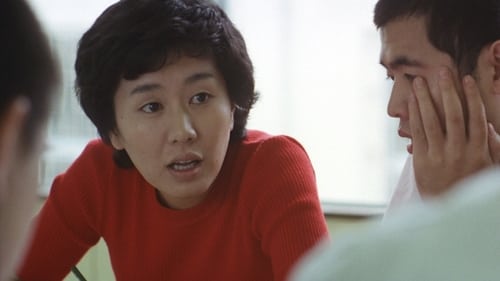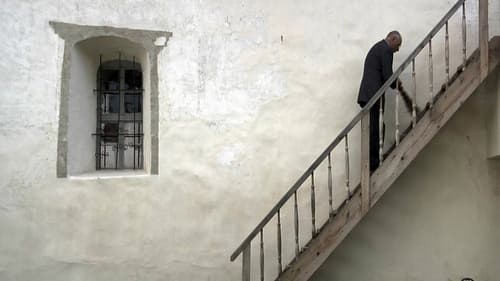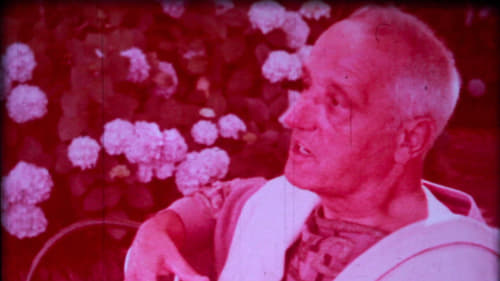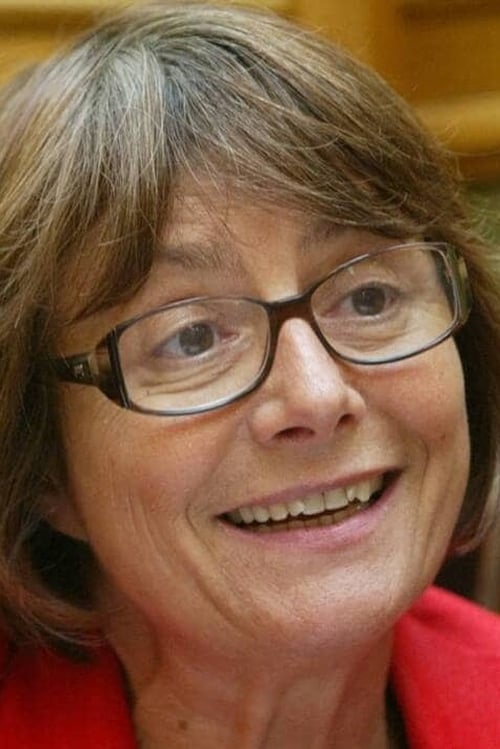Délits flagrants (1994)
Genre : Documentary
Runtime : 1H 49M
Director : Raymond Depardon
Synopsis
This documentary is a collection of footage of 14 suspects being 'interviewed' by the deputy public prosecutors.

A man trying to keep himself afloat and marry the woman he loves sees all that's dear to him threatened in this drama. Marcus (Sam Louwyck) works as a maintenance man for a Belgian power company, keeping lines and electrical towers in repair along a thinly populated area with a few low-income neighborhoods scattered across the plains. Marcus has been living with his pretty girlfriend Bettina (Lisbeth Gruwez) for quite some time; she runs a diner, and they have a nine-year-old daughter Tessa (Kimke Desart) who seems to live in a world of her own. Marcus's boss is Hungarian émigré Szabolcs (Zoltan Miklos Hajdu), and when Marcus is seriously injured on the job, Szabolcs steps in to do his work. However, after meeting Bettina, Szabolcs decides to move into Marcus's personal life as well as his professional life.

Jofroi sells his orchard to Alphonse. Alphonse wants to use the land for crops, so he starts to cut down the trees. Jofroi is furious: how can someone cut down those trees? He threatens to commit suicide so that the small town will blame Alphonse and Alphonse’s life will be miserable. Alphonse, the curate, the teacher, and some of the townsfolk spend the rest of the movie trying to keep Jofroi from committing suicide…

Accompanied by a lilting soundtrack, characters wander through London's concrete jungle as the narrator reflects on the current state of the city and her imagined future.

An exhausted militant wants to take a break from the incessant frenzy surrounding him. His country’s dictatorship is on its last legs and chaos reigns. His wife Sylvie leaves their country for France. She writes about the new democracy struggling to be born back home. His daughter Joyce must hide out in the deserted childhood home in the solitude and infinity of the Black Beach. Several adversaries – the militia of a hazy regime in his native land and the Paris police – wage a strange game of chess in which he is the pawn. Threats abound and he’s haunted by his past, his fears, dead friends. He has three allies: his wife, his daughter, and an old girlfriend from his fighting days.

A man visits a school to enroll his son, but then he pulls out a gun and robs the school from their money. The movie follows the man and is shot with an unsteady handycam.

After a bull is killed in a bullfight, its body parts are transported across Spain, France, Italy and Belgium. The bull's parts fall into the wide variety of people, including: an Italian actress selling the bones in a supermarket promotion, a Spanish woman who dines on its steaks, a little girl in France who imagines a world where animals are much larger than humans, and a taxidermist whose wife is simultaneously giving birth to quintuplets.

An isolated orphanage, called the 'House of Angels'. The director of this orphanage religiously brainwashes the children into believing that eating is a shameful thing. Among the children, Shin Sung-Il is the most exemplary student who tries hardest to follow the director's doctrine, but he is also the most chubby. He tries to fast from time to time, only to fail. Meanwhile, the children suspect the director's real intention and plan an uprising to escape from the orphanage. However, it is Sung-Il who escapes. Out in society, Sung-Il discovers people eating openly without shame. With hatred toward such depraved people, he feels the pangs of hunger more and more...

Catherine, a concert pianist, is surprised one night by the arrival of her best friend from childhood, Marie-Alexandrine (Max), whom she hasn't seen for 25 years. Catherine and Max were Québec's most promising young pianists in the mid-1960's when the adventurous Max gets pregnant. She wants to keep the child, but her mother forces her to give him up for adoption; afterwards, Max leaves Québec and music. Now, years later, she returns, obsessed with finding her son. She locates the adoption records, and social services contacts her son to ask if he wants to see her. He refuses, but she keeps trying. Is a relationship with him possible? And what about her musical talent?

You wake up in a warehouse where a bunch of degenerates is willing to execute you.

Simon has to drive his old aunt Mala and two of her friends, Lydia and Colette, to the seaside. While driving, he gets a call from his girlfriend, Alice, which turns into an argument. Being the Jewish grandmothers that they are, the three women slowly but surely interfere. This, of course doesn't solve anything...

Juliano Mer Khamis' documentary on his mother, Arna, an activist against the Israeli occupation who founded an alternative education system for Palestinian children.

Third and Shinbunbu embark on a plan to make money by Third becoming a pimp and Shinbunbu a prostitute.

In Bali, a young woman falls for a musician, but he may have eyes for her half sister.

A glimpse at the daily lives of patients in a Romanian psychiatric hospital.

An acerbic and surreal comedy about marriage and married life.

Squash is a 2002 French short film directed by Lionel Bailliu, with Malcolm Conrath and Eric Savin. Two businessmen, Alexandre and his boss, play a game of squash. The game escalates from "fun" to fairly high stakes, as both players demonstrate that squash is a mental game, not just a physical game. The film was nominated for an Oscar for Best Live Action Short Film.

Beijing, 1902: an enterprising young portrait photographer named Liu Jinglun, keen on new technology, befriends a newly-arrived Englishman who's brought projector, camera, and Lumière-brothers' shorts to open the Shadow Magic theater. Liu's work with Wallace brings him conflict with tradition and his father's authority, complicated by his falling in love with Ling, daughter of Lord Tan, star of Beijing's traditional opera. Liu sees movies as his chance to become wealthy and worthy of Ling. When the Shadow Magic pair are invited to show the films to the Empress Dowager, things look good. But, is disaster in the script? And, can movies preserve tradition even as they bring change?

Fragment of last reel from "History Lessons" presented in an installation as a special event for the Venice Biennale Arte.

An 18th-century true story about a rebel and his lover's attempt to overthrow the Italian monarchy.

“Since airplanes did not exist, people moved around using prayers; they went from one land to another and returned early, before dawn. In old audio recordings, the voices of pastors speak of the mythical existence of witches and their travels. In the daily life of a woman, the magic of her tales begins to materialize as night falls. Night is the time when travel is possible.”—Samuel Delgado & Helena Girón






